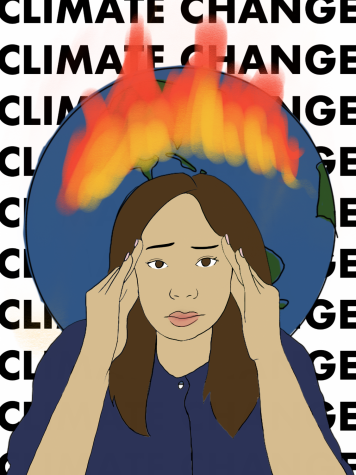Protect the Parks: Dealing with Eco-anxiety
How the environmental crisis affects mental health, depressing, global warming

While it’s completely normal to feel overwhelmed by the environmental crisis, letting go of that fear and instead working toward sustainability will benefit the planet in the long run.
Eco-anxiety.
A term for the terrifying doom caused by environmental destruction.
According to Medical News Today, a 2018 national survey found that almost 70 percent of people in the United States have concerns over climate change, with 51 percent feeling hopeless about the circumstances.
Personally, I have felt pessimistic when thinking about climate change and the suffering of millions of people and animals as a result of it. I understand why people say that they don’t like to think about the environment, because too much exposure to the harsh reality of global warming is depressing.
The horrifying, gory video of a turtle with a straw stuck up its nose for example, is proof of the countless suffering of victims and the destruction of biodiversity as a result of hurricanes caused by rising sea levels.
These are all examples of the way climate change is portrayed in the media. As a result, people feel guilty and try to “help” solve this problem, as explained in my Oct. column, “The insignificance of small-scale actions.”
It’s okay to feel overwhelmed and depressed as these feelings are valid and understandable. However, it is not okay to ignore the problem or refuse to make changes in your day to day life.
Take the steps to self soothe, and work your way up to sustainability instead of forcing yourself to make big changes that you are not ready for. Chances are, you may not commit to long-term, important changes. Instead, try making smaller, easily implementable changes, which can eventually lead to long-term changes in your habits and lifestyle.
For instance, you can take shorter showers to save water. Wash all your laundry at once instead of in small loads. Carpool with friends while commuting, or invest in an electric car or a car with good gas mileage.
These solutions not only help the environment, but they can help you save money by spending less on water and gas.
Here is how you can fight against climate change: engage and encourage other people, find ways to make your house energy efficient and be environmentally conscious of your everyday choices.











